SLSA: Literary Criticism
Virtual presence for attendees and those interested in the 2023 annual meeting of the Society for Literature, Science, and the Arts. Books on sale, University of Minnesota Press information, and more.
UNIVERSITY OF MINNESOTA PRESS: 40% OFF BOOKS + FREE SHIPPING
All books below are 40% off using code MNSLSA23. Code expires December 1, 2023.
BROWSE BOOKS:
PHILOSOPHY AND THEORY // ART AND MEDIA // ENVIRONMENT
POLITICS AND ACTIVISM // ANIMALS AND SOCIETY // ANTHROPOLOGY
SCIENCE AND TECHNOLOGY // DIGITAL CULTURE // ETHNOGRAPHY
RACE // GENDER AND SEXUALITY // GEOGRAPHY
LITERATURE // LITERARY CRITICISM // DISABILITY STUDIES
-
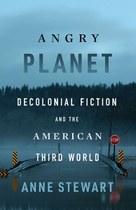 Angry Planet
Decolonial Fiction and the American Third World
Anne Stewart
2022 Fall
Angry Planet
Decolonial Fiction and the American Third World
Anne Stewart
2022 Fall
- Before the idea of the Anthropocene, there was the angry planet
-
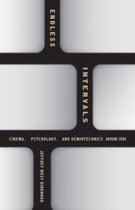 Endless Intervals
Cinema, Psychology, and Semiotechnics around 1900
Jeffrey West Kirkwood
2022 Fall
Endless Intervals
Cinema, Psychology, and Semiotechnics around 1900
Jeffrey West Kirkwood
2022 Fall
- Revealing cinema’s place in the coevolution of media technology and the human
-
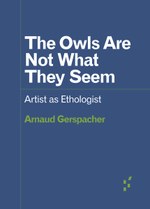 The Owls Are Not What They Seem
Artist as Ethologist
Arnaud Gerspacher
2022 Fall
The Owls Are Not What They Seem
Artist as Ethologist
Arnaud Gerspacher
2022 Fall
- Toward a posthumanist art and ethology
-
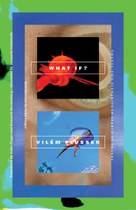 What If?
Twenty-Two Scenarios in Search of Images
Vilém Flusser
2022 Spring
What If?
Twenty-Two Scenarios in Search of Images
Vilém Flusser
2022 Spring
- An imagination of possibilities, of miscalculations, of futures off-kilter
-
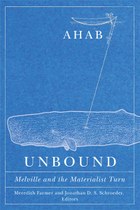 Ahab Unbound
Melville and the Materialist Turn
Meredith Farmer and Jonathan D. S. Schroeder, Editors
2021 Fall
Ahab Unbound
Melville and the Materialist Turn
Meredith Farmer and Jonathan D. S. Schroeder, Editors
2021 Fall
- Why Captain Ahab is worthy of our fear—and our compassion
-
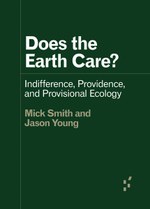 Does the Earth Care?
Indifference, Providence, and Provisional Ecology
Mick Smith and Jason Young
2022 Fall
Does the Earth Care?
Indifference, Providence, and Provisional Ecology
Mick Smith and Jason Young
2022 Fall
- Rethinking our relationship with Earth in a time of environmental emergency
-
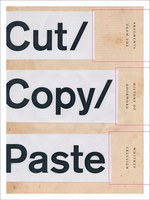 Cut/Copy/Paste
Fragments from the History of Bookwork
Whitney Trettien
2021 Fall
Cut/Copy/Paste
Fragments from the History of Bookwork
Whitney Trettien
2021 Fall
- How do early modern media underlie today’s digital creativity?
-
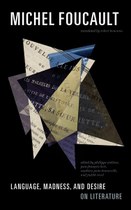 Language, Madness, and Desire
On Literature
Michel Foucault
2021 Fall
Language, Madness, and Desire
On Literature
Michel Foucault
2021 Fall
- Insight into the importance of literature for Michel Foucault—published in English for the first time
-
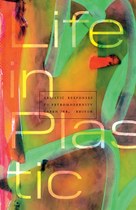 Life in Plastic
Artistic Responses to Petromodernity
Caren Irr, Editor
2021 Fall
Life in Plastic
Artistic Responses to Petromodernity
Caren Irr, Editor
2021 Fall
- A vital contribution to environmental humanities that explores artistic responses to the plastic age
-
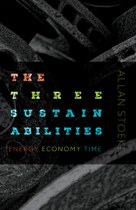 The Three Sustainabilities
Energy, Economy, Time
Allan Stoekl
2021 Fall
The Three Sustainabilities
Energy, Economy, Time
Allan Stoekl
2021 Fall
- Bringing the word sustainability back from the brink of cliché—to a substantive, truly sustainable future
-
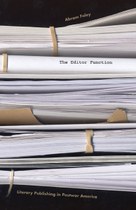 The Editor Function
Literary Publishing in Postwar America
Abram Foley
2021 Fall
The Editor Function
Literary Publishing in Postwar America
Abram Foley
2021 Fall
- Offering the everyday tasks of literary editors as inspired sources of postwar literary history
-
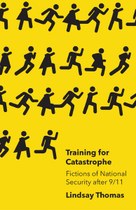 Training for Catastrophe
Fictions of National Security after 9/11
Lindsay Thomas
2021 Spring
Training for Catastrophe
Fictions of National Security after 9/11
Lindsay Thomas
2021 Spring
- A timely, politically savvy examination of how impossible disasters shape the very real possibilities of our world
-
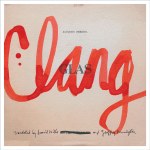 Clang
Jacques Derrida
2020 Fall
Clang
Jacques Derrida
2020 Fall
- A new translation of Derrida’s groundbreaking juxtaposition of Hegel and Genet, forcing two incompatible discourses into dialogue with each other
-
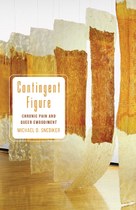 Contingent Figure
Chronic Pain and Queer Embodiment
Michael D. Snediker
2021 Spring
Contingent Figure
Chronic Pain and Queer Embodiment
Michael D. Snediker
2021 Spring
- A masterful synthesis of literary readings and poetic reflections, making profound contributions to our understanding of chronic pain
-
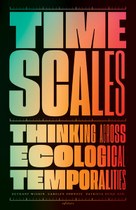 Timescales
Thinking across Ecological Temporalities
Bethany Wiggin, Carolyn Fornoff and Patricia Eunji Kim, Editors
2020 Fall
Timescales
Thinking across Ecological Temporalities
Bethany Wiggin, Carolyn Fornoff and Patricia Eunji Kim, Editors
2020 Fall
- Humanists, scientists, and artists collaborate to address the disjunctive temporalities of ecological crisis
-
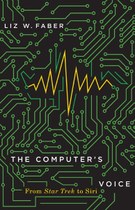 The Computer’s Voice
From Star Trek to Siri
Liz W. Faber
2020 Fall
The Computer’s Voice
From Star Trek to Siri
Liz W. Faber
2020 Fall
- A deconstruction of gender through the voices of Siri, HAL 9000, and other computers that talk
-
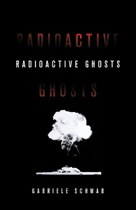 Radioactive Ghosts
Gabriele Schwab
2020 Fall
Radioactive Ghosts
Gabriele Schwab
2020 Fall
- A pioneering examination of nuclear trauma, the continuing and new nuclear peril, and the subjectivities they generate
-
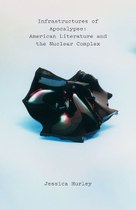 Infrastructures of Apocalypse
American Literature and the Nuclear Complex
Jessica Hurley
2020 Fall
Infrastructures of Apocalypse
American Literature and the Nuclear Complex
Jessica Hurley
2020 Fall
- A new approach to the vast nuclear infrastructure and the apocalypses it produces, focusing on Black, queer, Indigenous, and Asian American literatures
-
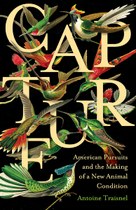 Capture
American Pursuits and the Making of a New Animal Condition
Antoine Traisnel
2020 Fall
Capture
American Pursuits and the Making of a New Animal Condition
Antoine Traisnel
2020 Fall
- Reading canonical works of the nineteenth century through the modern transformation of human–animal relations
-
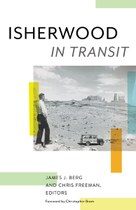 Isherwood in Transit
James J. Berg and Chris Freeman, Editors
2020 Spring
Isherwood in Transit
James J. Berg and Chris Freeman, Editors
2020 Spring
- New perspectives on Christopher Isherwood as a searching and transnational writer
-
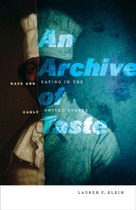 An Archive of Taste
Race and Eating in the Early United States
Lauren F. Klein
2020 Spring
An Archive of Taste
Race and Eating in the Early United States
Lauren F. Klein
2020 Spring
- A groundbreaking synthesis of food studies, archival theory, and early American literature
-
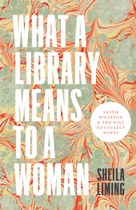 What a Library Means to a Woman
Edith Wharton and the Will to Collect Books
Sheila Liming
2020 Spring
What a Library Means to a Woman
Edith Wharton and the Will to Collect Books
Sheila Liming
2020 Spring
- Examining the personal library and the making of self
-
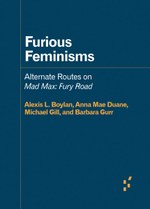 Furious Feminisms
Alternate Routes on Mad Max: Fury Road
Alexis L. Boylan, Anna Mae Duane, Michael Gill and Barbara Gurr
2020 Spring
Furious Feminisms
Alternate Routes on Mad Max: Fury Road
Alexis L. Boylan, Anna Mae Duane, Michael Gill and Barbara Gurr
2020 Spring
- A provocative peek into this complicated film as a space for subversion, activism, and imaginative power
-
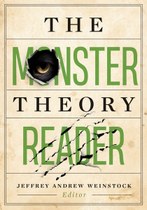 The Monster Theory Reader
Jeffrey Andrew Weinstock, Editor
2020 Spring
The Monster Theory Reader
Jeffrey Andrew Weinstock, Editor
2020 Spring
- A collection of scholarship on monsters and their meaning—across genres, disciplines, methodologies, and time—from foundational texts to the most recent contributions
-
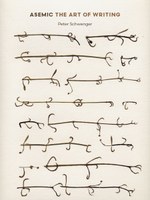 Asemic
The Art of Writing
Peter Schwenger
2019 Fall
Asemic
The Art of Writing
Peter Schwenger
2019 Fall
- The first critical study of writing without language
-
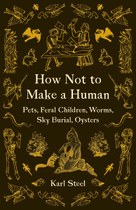 How Not to Make a Human
Pets, Feral Children, Worms, Sky Burial, Oysters
Karl Steel
2019 Fall
How Not to Make a Human
Pets, Feral Children, Worms, Sky Burial, Oysters
Karl Steel
2019 Fall
- From pet keeping to sky burials, a posthuman and ecocritical interrogation of and challenge to human particularity in medieval texts
-
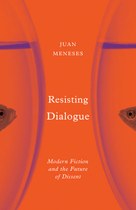 Resisting Dialogue
Modern Fiction and the Future of Dissent
Juan Meneses
2019 Fall
Resisting Dialogue
Modern Fiction and the Future of Dissent
Juan Meneses
2019 Fall
- A bold new critique of dialogue as a method of eliminating dissent
-
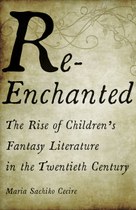 Re-Enchanted
The Rise of Children’s Fantasy Literature in the Twentieth Century
Maria Sachiko Cecire
2019 Fall
Re-Enchanted
The Rise of Children’s Fantasy Literature in the Twentieth Century
Maria Sachiko Cecire
2019 Fall
- From The Hobbit to Harry Potter, how fantasy harnesses the cultural power of magic, medievalism, and childhood to re-enchant the modern world
-
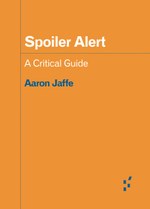 Spoiler Alert
A Critical Guide
Aaron Jaffe
2020 Spring
Spoiler Alert
A Critical Guide
Aaron Jaffe
2020 Spring
- All of this information at our fingertips—and we might not need any of it
-
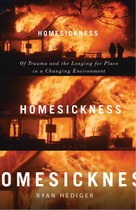 Homesickness
Of Trauma and the Longing for Place in a Changing Environment
Ryan Hediger
2019 Fall
Homesickness
Of Trauma and the Longing for Place in a Changing Environment
Ryan Hediger
2019 Fall
- Introducing a posthumanist concept of nostalgia to analyze steadily widening themes of animality, home, travel, slavery, shopping, and war in U.S. literature after 1945